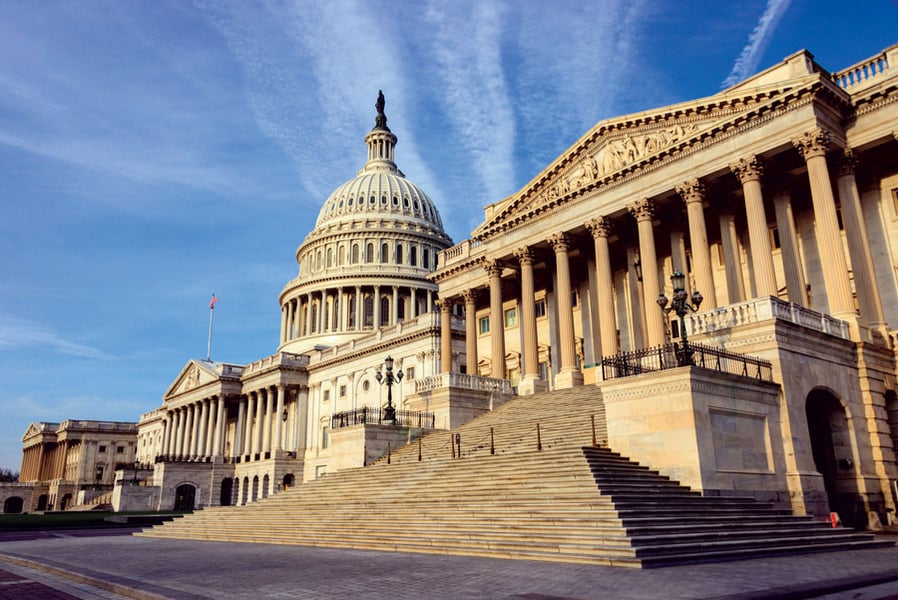

When Neil Simon spoke in early March at an Investment Adviser Association conference about restoring a tax break for financial advice, it was at the top of a wish list that he acknowledged might not be fulfilled until next year or later.
But the legislative flurry caused by the COVID-19 pandemic has the IAA and other trade associations representing financial advisers hoping to make tax incentives for financial advice a reality in the near future.
The IAA, the Financial Services Institute, the National Association of Personal Financial Advisors, the Financial Planning Association and the Certified Financial Planning Board of Standards Inc. are lobbying lawmakers to include a provision in the next coronavirus stimulus legislation that would revive and expand the tax deductibility of professional investment advice.
The 2017 tax reform law eliminated the tax break provided for advice fees that exceed 2% of a taxpayer’s adjusted gross income. The advice organizations are seeking to restore that incentive and expand it by eliminating the 2% AGI threshold and including the deductibility of financial planning fees.
The coronavirus outbreak “makes it all the more important that American taxpayers have access to and use the services of professional financial advisers,” said Simon, vice president of government relations at IAA. “This provision would allow greater access to professional advice effectively by lowering the cost of it. We’re making that case to Congress. We’re getting a positive response, but it’s still early.”
Congress has approved three bills to address the virus outbreak. The most recent was a $2.2 trillion package, known as the Cares Act, that was signed into law on March 28.
In an April 4 letter to colleagues, House Speaker Nancy Pelosi urged the chamber to pass “Cares 2” legislation that “must go further in assisting small businesses,” bolstering unemployment benefits, giving more direct payments to families and supporting health care infrastructure and professionals.
More of a slog for next stimulus
Senate Majority Leader Mitch McConnell, R-Ky., indicated in a recent interview that he is not as enthusiastic about proceeding quickly to another stimulus bill.
If the tax break for investment advisory services is to get traction, it likely would have to be put on the legislative agenda by one of the leaders of congressional tax-writing committees, such as the Senate Finance Committee or the House Ways and Means Committee.
Michael Zona, a spokesperson for Senate Finance Committee Chairman Charles Grassley, R-Ia., said the prospects for another stimulus bill and its contents are unclear.
“Sen. Grassley will work with his colleagues on Phase 4 legislation if it becomes necessary,” Zona wrote in an email. “It’s too early to say what the legislation might encompass. It would need to address any ongoing problems in an effective manner.”
The Cares Act was approved within a week of McConnell's introducing it. Its successor, if there is one, likely will face more of a legislative slog.
“There’s going to be a fair amount of deliberation and negotiation,” Simon said. “It’s unlikely this bill is going to be enacted anywhere near as rapidly. But it will provide us an opportunity to make our best case for an advice-fee deduction.”
Expanding tax break to financial planning
Kevin Keller, CFP Board chief executive, said financial advice is central to addressing the economic havoc wrecked by the pandemic because investors are worried both about short-term losses and the financial health of their long-term retirement savings.
He also said it’s important to expand the tax break to those who would use it for financial planning.
“Many people who need planning and financial advice help may not have a portfolio that is subject to advisory fees,” Keller said.
The coalition pushing the tax incentive has been split in the past on issues such as the Securities and Exchange Commission’s Regulation Best Interest to raise the broker advice standard.
“When you look at the organizations that have come together on this, it’s a little bit of strange bedfellows,” Keller said. “We’ve been on opposite sides. But on issues where we’ve seen a common good, we’ve come together.”

Relationships are key to our business but advisors are often slow to engage in specific activities designed to foster them.

Whichever path you go down, act now while you're still in control.

Pro-bitcoin professionals, however, say the cryptocurrency has ushered in change.

“LPL has evolved significantly over the last decade and still wants to scale up,” says one industry executive.

Survey findings from the Nationwide Retirement Institute offers pearls of planning wisdom from 60- to 65-year-olds, as well as insights into concerns.
Streamline your outreach with Aidentified's AI-driven solutions
This season’s market volatility: Positioning for rate relief, income growth and the AI rebound
